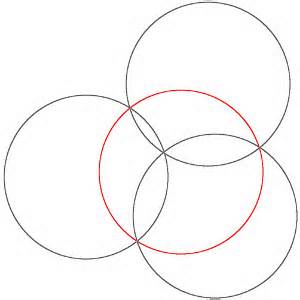After my long-time partner, Ron Conroy, left his physical
form in April 2013, he began communicating with me about the place where he now
resides, a place he calls “home,” and showing me what it’s like in the spirit
world. What he described, and what I witnessed, closely matched what I later
read in books by Michael Newton, PhD. Even the use of Ron's word “home” to describe the spirit realm we return to after
physical death is echoed in the accounts of people who’ve undergone near death
experiences, shown in a video module of Dr. Piero Calvi-Parisetti’s course Love Knows No Death.
Primary and Secondary Soul Groups
In the realm of spirits, entities cluster together in groups
in which some affinity exists––just as people on earth do. Not all souls
associate with all others––though they could if they wanted to because
ultimately none of us is an island separate from the rest. But souls in the
spirit world, as we earthlings do, tend to hang out with beings who have
similar interests or purposes.
In his book Destiny of
Souls, Dr. Newton writes that “primary groups”––somewhat like
families––consist of three to twenty-five souls who have close ties to each
other. “Secondary groups” may contain 1,000 souls or more and resemble
communities. The souls in these larger clusters may interact for various
reasons, such as joining forces to assist in a particular project or to achieve
a common goal.
Souls in primary clusters are bonded forever. They work,
learn, and play together in the spirit world, and often reincarnate together on
earth or in other places. They do this partly because their paths and purposes
are aligned, but also because they just want to be together. According to Dr.
Newton, soul mates and beings from the same primary soul group don’t usually
incarnate as humans within the same biological family, however, which I found
interesting.
Ron explained that primary soul groups may be self-contained
circles, or they can overlap, like the intersecting rings of the Olympics logo.
He said this means that although he and I are in the same primary soul cluster,
some beings in other clusters overlap ours. As a result, some souls who are in
my primary group aren’t in his, and vice versa.
As well as sharing related interests and purposes, beings
within a primary group usually possess similar levels of knowledge. Beginner
souls and master souls don’t cluster together in the same intimate group––although
souls with varying degrees of knowledge may interact at times for certain reasons.
I also got the impression that as one soul in the group advances, the soul’s
increased knowledge and experience aid the advancement of the entire group.
While looking at pictures of crop circles, I noticed a
similarity to the soul clusters I’d seen in the spirit world and began to
wonder. Are these mysterious designs, which appear without explanation in
fields across the earth, actually images created to help us understand
something about our existence as spirits?
Meeting Our Soul-Group Mates
Often we recognize people we know now as people we’ve known
before. Individuals who undergo past-life regression frequently describe
meeting the same souls in lifetime after lifetime. A son in this incarnation
may have been a husband or a brother in a previous one. Many writers and
researchers in the field of reincarnation have talked about this, and I’ll discuss
it more in future posts.
Think about the people you know and have known during this
incarnation. These may be friends, relatives, business colleagues, powerful
influences in your life, teachers, helpers, or adversaries. Which ones do you
consider the most important? What roles have they played for you? Did you feel
a powerful connection to these people when you first met, as if you’d known
each other forever? Does a person push your buttons? Did you meet under
synchronistic circumstances? For example, I met Ron fifteen minutes after
saying goodbye to a former boyfriend at the local train station. Driving home, I said “Okay, Goddess, what do you have for me now?” As I pulled into my
driveway Ron rode by on his bicycle. He turned around, pedaled up to me, and
introduced himself. We were together for the rest of his physical life––and
still are.
Are you aware of people in your current life whom you feel
you’ve known before? What insights or experiences have led you to think this
way? How do you interpret your present-life interactions with these people? Can
you see links between “then” and “now”? What are you learning from each other?
Are you carrying on work from another lifetime? How can you help one another
this time around?




No comments:
Post a Comment